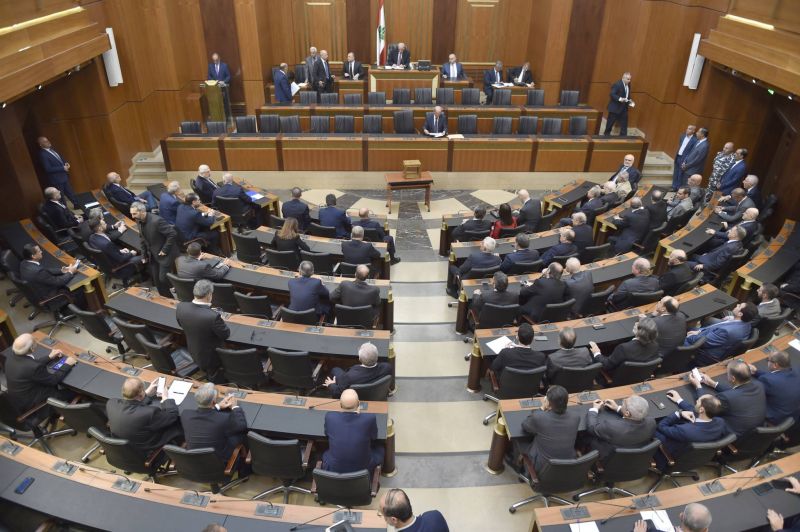
Lebanese Parliament during a presidential electoral session on Nov.10, 2022. (Credit: Hassan Ibrahim/Lebanese Parliament)
Lebanese MPs convened on Thursday morning at the Parliament building in Beirut to attempt for the sixth time in less than two months to elect a successor to former President Michel Aoun, whose term in office expired on Oct. 31.
More than 86 MPs — the quorum necessary for the session to take place — were present at Parliament, so the session started at 11 a.m. Five MPs were officially excused for their absence, according to Speaker of Parliament Nabih Berri.
However, it seems unlikely that this session will result in the election of a new head of state, due to the absence of an agreement between the country's assorted political parties to on a single candidate, as is customary in Lebanon.
The five previous sessions dedicated to naming Lebanon's next president have ended in failure. In the first round of voting, a candidate needs to obtain at least 86 votes (a two-thirds majority) to be elected president; if no candidate is elected in the first round and voting goes to a second round, an absolute majority of 65 votes is all that is needed to be elected. The same is true of any subsequent rounds of voting.
In each of the electoral sessions held thus far, Parliament has not reached a second round of voting because members of Hezbollah and its allies have withdrawn from the session after the first round, leading to a loss of the required quorum to continue the session. Berri considers that each new session resets the voting process, meaning that even if a first round vote took place at the previous session, the legislature will again begin with a first round vote. There is some debate that this approach contradicts the constitution, according to which, a two-thirds majority is needed to elect a president in the first round of voting, while only a simple majority is required in all subsequent rounds. Some contend that first found should be considered as the vote Parliament held on Sept. 29, which returned no conclusive results.
In the first rounds so far, the Free Patriotic Movement (FPM) and its allies, Hezbollah and the Amal Movement, have cast blank ballots — evidence that as yet there is no agreement between the parties on a presidential candidate.
Opposition MPs are, for their part, also still unable to agree on a single candidate they can all back. A meeting of opposition MPs on Tuesday at the parliamentary library to "break the wall of obstruction" did not result in unification behind a single candidate, MP Mark Daou told L'Orient Today.
For their part, former prime ministers Najib Mikati, Tammam Salam and Fouad Siniora pleaded on Monday, after a tripartite meeting, for a head of state who would "enjoy the confidence of all Lebanese" and "who would respect the constitution." Mikati expressed on Monday a wish to see the leader of the Marada Movemenr, Sleiman Frangieh, become president. None of the three former premiers is currently an MP.
Hezbollah, for its part, continues to advocate for a head of state who "does not stab the Resistance in the back."
In the meantime, the country remains confronted, for the first time in its history, with a double power vacuum in the executive: it is without a head of state and Mikati's cabinet continues to hold only caretaker authority since its assumption of the status following parliamentary elections in May.